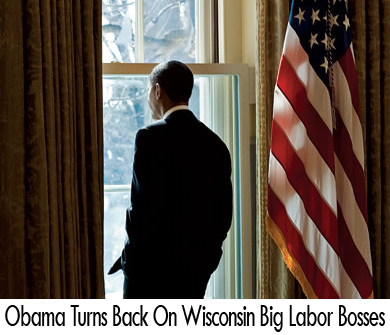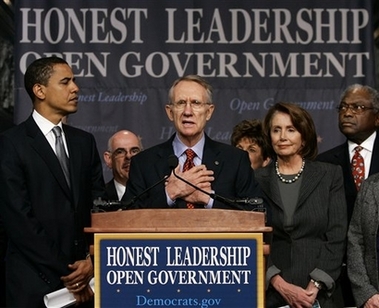Big Labor's Watershed Moment
Edward Morrisey looks at the impact of recent victories in Wisconsin and Indiana arguing that this signals a watershed moment for reform: Have we reached a watershed moment for the labor movement? Earlier this year, Indiana became the first Rust Belt state to enact right-to-work laws. Arizona made their already-restrictive environment even tougher. And now, after targeting Wisconsin Governor Scott Walker and other republican lawmakers for more than a year, the labor movement has come up empty. In Wisconsin, Walker’s reforms of public-sector collective bargaining were at issue. Democrats nationwide allied themselves with the unions in pushing for recall elections, and liberal pundits promised they would stop this encroachment on labor prerogatives and send a lesson to other governors around the nation. In that, at least, they succeeded, but not in the way the unions had hoped. Despite the high-profile campaign waged by the labor movement in Wisconsin -- where unions have a long history of support – Wisconsin voters reaffirmed Walker as their governor. In fact, Walker won 125,000 more votes in the special recall election than he did in 2010, which was known as a wave election for Tea Party conservatives. He bested the same opponent, Milwaukee mayor Tom Barrett, by an even wider margin of seven points rather than the five-point victory 19 months earlier. The results exposed labor’s weakness rather than strength. While it might not encourage other states to take drastic action to reduce the collective bargaining power, the impotence of the unions in what had been the heart of the progressive Midwest certainly won’t convince anyone not to try. Thanks to the millions spent by the unions in a failed attempt at undoing the 2010 election, Big Labor might not have the resources to fight on this scale again, especially with the national election on the horizon. Nor was this the only big loss that unions took on Tuesday night. In California, where public-employee unions have exerted a strong influence on politics for decades, two cities defied the PEUs to pass badly-needed pension reforms. That may




